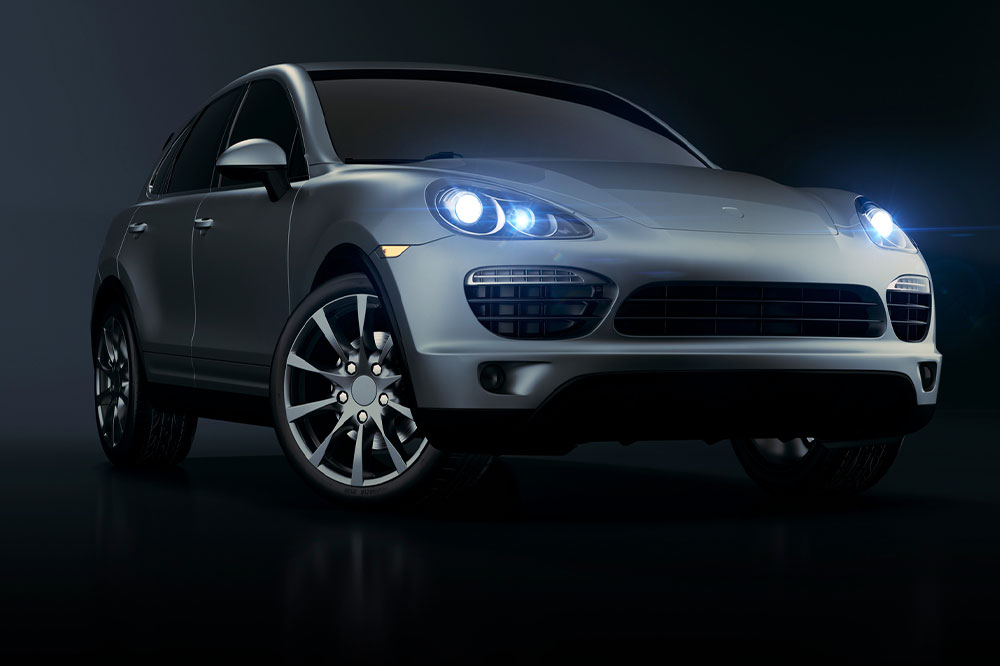4 Key Elements of the Dodge Hornet
The Hornet is Dodge’s most important vehicle in years. This all-new SUV enables the carmaker to compete in the wildly popular small SUV segment. Despite being a chic compact SUV, the Hornet retains many of Dodge’s muscle car qualities of yore in terms of styling, performance, and driving dynamics. Also, this vehicle is well-equipped with convenience, entertainment, and safety features like the other premium SUVs in this segment.

Interiors, passenger space, and features
The Dodge Hornet shares DNA with the Alfa Romeo Tonale as they are built from the same platform. Therefore, the Hornet’s cabin is roomy and full of premium materials, just like the Tonale.
There are plenty of ergonomic touches throughout this cabin. For instance, the start/stop button is on the center console for better visibility. Additionally, the 12.3-inch digital instrument cluster, as well as all the buttons and switches, are in clear view and easy to use. The Dodge Hornet can comfortably seat four 6-foot-tall adults, however, squeezing in a fifth passenger in the back seat can be a challenge.
This compact SUV does not fare too badly in terms of features and safety equipment either, with niceties such as hands-free entry, four one-touch power windows, a 10.25-inch infotainment display, USB connectivity, Android Auto and Apple CarPlay connectivity, a 14-speaker Harman Kardon sound system, wireless charging, heated mirrors, adaptive cruise control, rear parking sensors, a rearview camera, dual illuminating vanity mirrors, a dual-zone air conditioning system, a tachometer, and a trip computer.
The car also packs plenty of safety features, both in terms of active collision avoidance and keeping its occupants safe in case of an accident. As a part of the SUV’s Advanced Driver-Assistance Systems (ADAS), features such as automatic emergency braking, blind-spot detection, lane departure warning, and rear-cross traffic alert come as standard. If buyers purchase the optional tech pack, they will unlock Level 2 autonomous driving, traffic jam assist, advanced lane centering, and traffic sign recognition.
Engine and performance
Buyers can choose between two trim options- GT and R/T while buying the Hornet. The GT variants come with the Hurricane 4, a 2.0-liter turbocharged four-cylinder engine that makes 265 hp of power and 295 pound-feet of torque. This engine supplies power to all four wheels via a nine-speed automatic gearbox. The GT variants’ performance figures are unsurprisingly strong, with 0-60 mph coming in just 6.5 seconds.
The R/T variants are fitted with a 1.3-liter four-cylinder turbocharged engine and a 90-kilowatt electric motor that draws power from a 15.5 kWh pack of batteries. This power source is connected to a six-speed automatic transmission that sends power to all four wheels. In combination, the two motors produce 285 hp of power and 184 pound-feet of torque. All that power helps propel the R/T variants from 0 to 60 mph in 6.1 seconds.
All in all, the Hornet’s performance figures and real-world driving feel are indicative of Dodge’s sporty DNA. The Hornet’s performance marks it out as a muscle car among crossover compact SUVs.
Ride and handling
To aid the Hornet’s handling, it has multiple aids, including an electronic limited-slip differential, fully independent suspension in the front and rear, a brake-by-wire Intelligent Braking System, and Dynamic Torque Vectoring. The car’s chassis has been tuned to make it a nimble handler around corners, even at super-high speeds. However, the sharp handling and driving dynamics come at the cost of the vehicle’s ride quality, which is not as pliant as some of the other SUVs in the Hornet’s price point.
Variants and price
One can buy the Dodge Hornet in one of four variants, including the GT, GT Plus, R/T, and R/T Plus. Its starting price ranges from $31,590 to $46,590.











